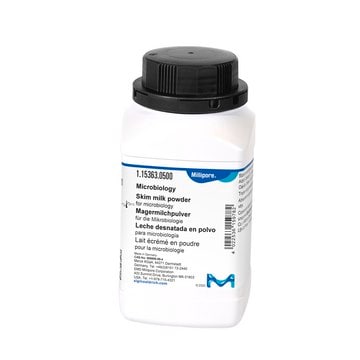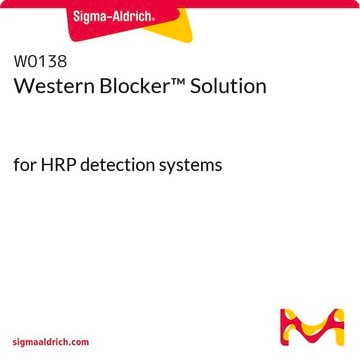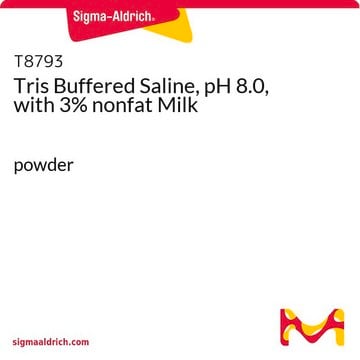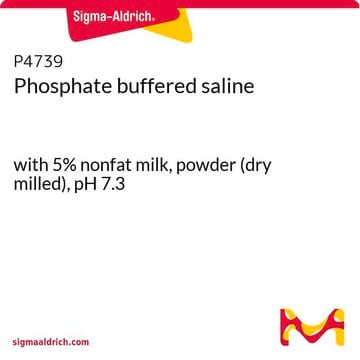The solubility of our skim milk powder, catalog no. 70166, is not assessed during QC release of the product. Hence, it cannot be confirmed nor guaranteed whether this powder will be soluble in TBS at a concentration of 5 % (w/v). Furthermore, because of the natural origin of the product, solubility may differ from lot to lot.
70166
Skim Milk Powder
suitable for microbiology
Synonym(s):
Milk powder fat-free
Select a Size
Select a Size
About This Item
Recommended Products
biological source
bovine milk
Quality Level
sterility
non-sterile
form
powder
composition
total nitrogen (N), 4.7-6.0%
availability
not available in USA and Canada
impurities
≤1.5% lipid
≥50.0% reducing sugars (as lactose monohydrate)
ign. residue
≤10%
loss
≤5% loss on drying
application(s)
food and beverages
pathogen testing
microbiology
General description
Application
Reconstitution
Other Notes
Storage Class Code
11 - Combustible Solids
WGK
WGK 1
Flash Point(F)
Not applicable
Flash Point(C)
Not applicable
Personal Protective Equipment
Choose from one of the most recent versions:
Already Own This Product?
Find documentation for the products that you have recently purchased in the Document Library.
Customers Also Viewed
Articles
Culture media provides a habitat with suitable nutrients, energy sources, and certain environmental conditions for the growth of microorganisms. The components of the culture media range from simple sugars to peptones, salts, antibiotics, and complex indicators.
-
We attempted to dissolve Skim Milk Powder (#70166) in water or TBS, but despite reducing the concentration to below 5% and vortexing for 2 minutes, it still failed to fully dissolve.Could plaese provide any suggestion?
1 answer-
Helpful?
-
-
Currently, we are in need of a sterile skim milk powder, and we are interested in using the skim milk powder available in your catalog (Product ID: 70166. Before making a purchase, we would like to confirm the sterility of the product.
1 answer-
This is a non-sterile product. However, the prepared solution can be sterilized by autoclaving for 5 minutes at 121 °C. Care should be taken not to overheat during sterilization, otherwise, caramelization will occur.
Helpful?
-
Active Filters
Our team of scientists has experience in all areas of research including Life Science, Material Science, Chemical Synthesis, Chromatography, Analytical and many others.
Contact Technical Service







